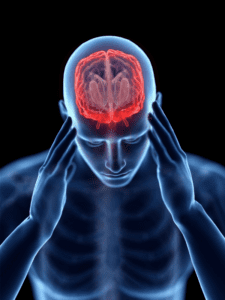
The Brain Injury Association of Michigan estimates that 58,500 Michiganders suffer traumatic brain injuries (TBIs) every year. People with mild TBIs, like concussions, often make a full recovery by resting and avoiding physically and mentally demanding activities. But not everyone is so lucky.
Nationwide, 166 people per day die from moderate to severe TBIs. But according to CDC statistics, 230,000 of those hospitalized for TBIs survive. Around 80,000 to 90,000 live with long-term disabilities due to their head injuries. For these survivors, extensive rehabilitation is often necessary to maximize their recoveries.
Rehabilitation After a Traumatic Brain Injury
 There is no one-size-fits-all approach to treatment for a traumatic brain injury. A combination of factors, including the location of the injury, how fast emergency treatment began, whether there were any complications, and the victim’s underlying health conditions and basic biology, could lead to different outcomes. With that said, doctors usually take a team approach to TBI treatment.
There is no one-size-fits-all approach to treatment for a traumatic brain injury. A combination of factors, including the location of the injury, how fast emergency treatment began, whether there were any complications, and the victim’s underlying health conditions and basic biology, could lead to different outcomes. With that said, doctors usually take a team approach to TBI treatment.
Depending on the nature of the injury, a TBI rehabilitation team may consist of:
- Physiatrist: A doctor who focuses on rehabilitation and supervises the process, prescribing medications as necessary.
- Physical therapist: Assists patients with mobility issues, such as relearning to walk and strengthening muscles needed for balance and coordination.
- Occupational therapist: Helps individuals improve their ability to perform everyday life tasks, such as bathing, eating, writing, and working. An occupational therapist helps TBI patients regain those skills and adapt if permanent disabilities prevent them from completing those tasks the way they did before their injuries.
- Speech therapist: Damage to the areas of the brain that control language can affect a TBI victim’s ability to speak, understand language, and swallow. Speech therapists aim to maximize recovery of these skills during traumatic brain injury treatment.
- Nurses and certified nursing assistants: Nurses provide ongoing care to patients after a TBI and oversee medication administration, patient hygiene, and ongoing medical needs.
- Social workers: Help patients and their families learn about community resources and plan transfers to community care centers, group homes, and nursing homes if needed.
- Vocational rehabilitation specialists: Evaluate potential work opportunities for people with traumatic brain injuries.
- Neuropsychologists: Provide testing to determine impairment levels and counsel individuals with emotional and behavioral challenges post-TBI.
Latest Treatments for TBI
For many years, doctors told TBI patients to expect most health improvements to happen within the first year of treatment and then level off. However, a 2021 study in JAMA Neurology showed that some patients with moderate to severe TBIs experience progress beyond the 12-month mark. According to researchers, this means that doctors may need to reevaluate how they come up with a prognosis for traumatic brain injury patients to avoid making a “rush to judgment” in the early days that underestimates the value of continued rehabilitation.
Coping and Support for TBI Victims and Families
A traumatic brain injury can have a life-changing effect on a person’s life. The worst injuries may change family relationships, end careers, cause cognitive and emotional problems, and even personality changes. These losses can be overwhelming. Getting support from a qualified therapist can be crucial in learning to cope with the consequences of a traumatic brain injury.
Community support programs also help TBI survivors and caregivers. The Michigan Department of Health and Human Services provides this guide with information and resources available to people with traumatic brain injuries.
Legal Help for Michigan Traumatic Brain Injury Victims
If someone else is responsible for your traumatic brain injury, you may have a valid legal claim against them. A successful personal injury claim can provide compensation to assist you with TBI rehabilitation costs and your anticipated future needs.
Christensen Law is an acclaimed personal injury law firm with locations throughout Michigan. We provide free consultations to determine whether victims have valid TBI claims. Call or contact us today to speak with a highly skilled traumatic brain injury lawyer.





